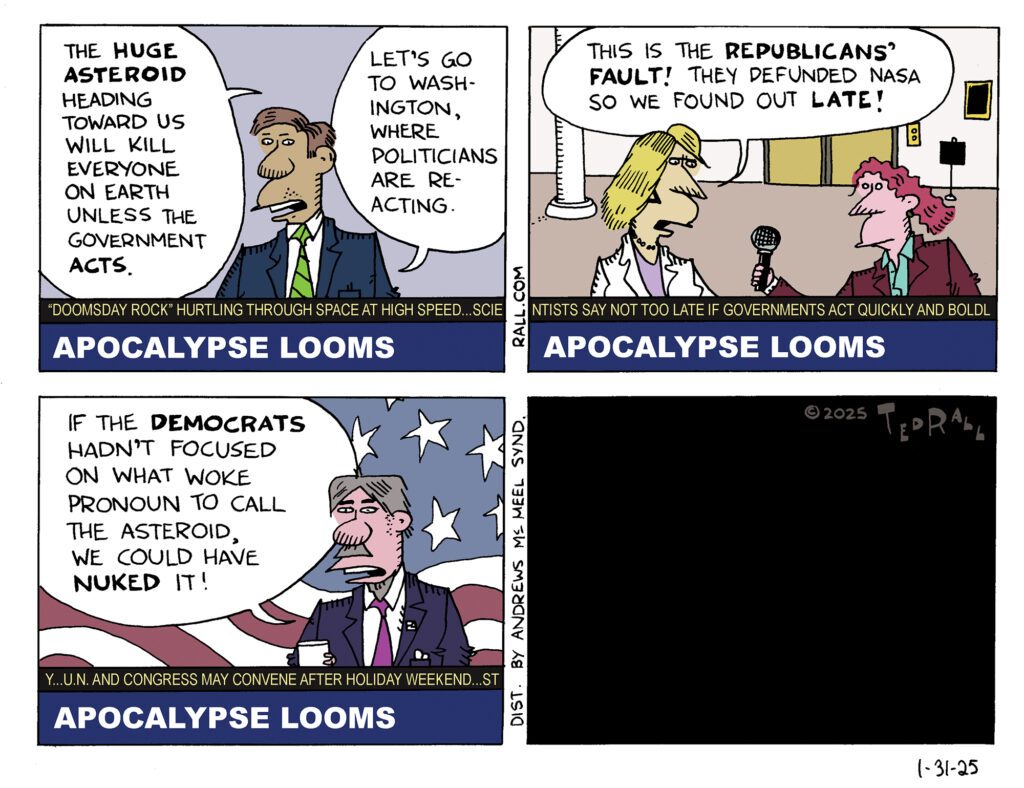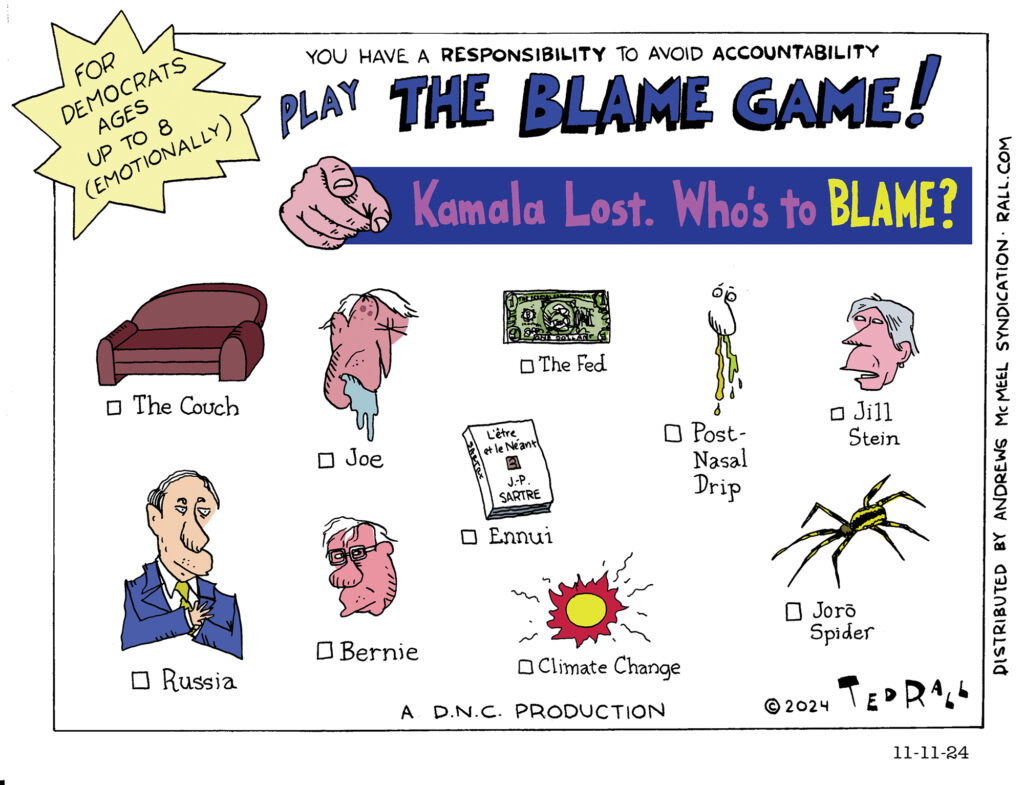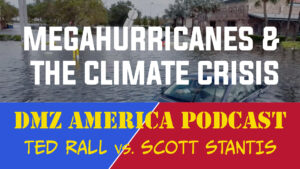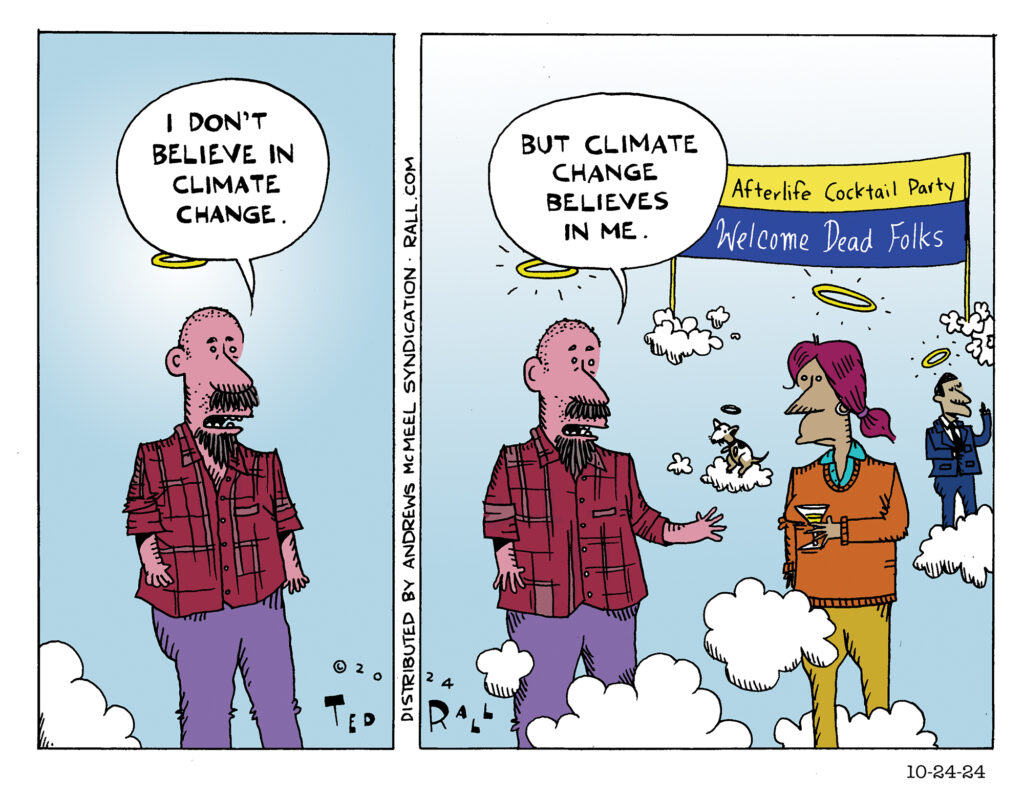LIVE 10 AM Eastern time, Streaming Anytime:
Prepare for a frightening episode of “The TMI Show with hosts Ted Rall and Manila Chan,” joined by Dr. Reese Halter. We’re tackling disturbing reports that the Trump Administration has directed the FBI to surveil, question, and harass peaceful climate-change and environmental activists. In Boston, at least six activists, including members of Extinction Rebellion, were visited at their homes by FBI agents with no clear motive, evidently intended as intimidation.
Elsewhere, groups like the Appalachian Community Capital Corporation and DC Green Bank, funded by Biden-era grants, face FBI probes for alleged fraud, which looks like harassment ordered by right-wing EPA Administrator Lee Zeldin to push against environmental justice initiatives.
These actions threaten free speech and the right to advocate for environmental causes. Why are nonviolent activists in the government’s sights? What does this mean for civil liberties and environmental justice? With sharp analysis, Ted, Manila, and Dr. Halter, a renowned environmental scientist, will unpack the motives behind this crackdown, examining its chilling effect on activism. The TMI Show delivers unfiltered insights, cutting through mainstream narratives to reveal the truth. This critical discussion is a must-watch for those concerned about government overreach and the future of environmental advocacy. Tune in live or stream anytime to stay informed on this urgent issue. Join The TMI Show for a compelling exploration of power, policy, and principle.



 In just two weeks, two huge Category 5 hurricanes slammed into Florida and North Carolina, killing hundreds of people and causing tens of billions of dollars in property damage. The new reality of climate change is that global warming is no longer in the future. It’s here now. The question is: what are we going to do to adjust in order to survive and mitigate the damage?
In just two weeks, two huge Category 5 hurricanes slammed into Florida and North Carolina, killing hundreds of people and causing tens of billions of dollars in property damage. The new reality of climate change is that global warming is no longer in the future. It’s here now. The question is: what are we going to do to adjust in order to survive and mitigate the damage?
 The U.S. government wastes approximately $4.5 trillion each year. “A billion here, a billion there, and pretty soon you’re talking real money,” Senate Minority Leader Everett Dirksen, an Illinois Republican, famously said, and said often. In this case, you’re talking about thousands of billions. ($4.5 trillion is the sum total of annual military spending that exceeds what we need to defend the United States homeland, the higher interest paid on the national debt due to the Fed’s attempts to fight inflation, federal subsidies paid to people and companies who don’t qualify for them, uncollected taxes the IRS doesn’t even attempt to get and foreign aid, much of it to rich countries.)
The U.S. government wastes approximately $4.5 trillion each year. “A billion here, a billion there, and pretty soon you’re talking real money,” Senate Minority Leader Everett Dirksen, an Illinois Republican, famously said, and said often. In this case, you’re talking about thousands of billions. ($4.5 trillion is the sum total of annual military spending that exceeds what we need to defend the United States homeland, the higher interest paid on the national debt due to the Fed’s attempts to fight inflation, federal subsidies paid to people and companies who don’t qualify for them, uncollected taxes the IRS doesn’t even attempt to get and foreign aid, much of it to rich countries.)